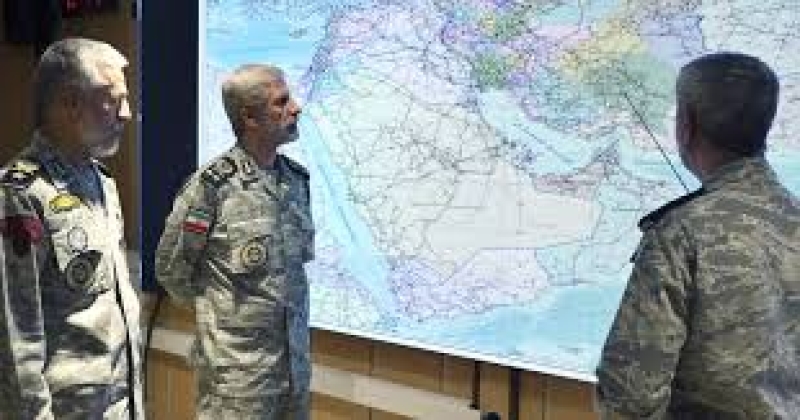- Hadi is no more, state mourning on Saturday: CA |
- Bangladesh capital market falls; weekly turnover lowest |
- Sharif Osman Hadi No More |
- Tarique Rahman to Return Home With Daughter on Dec 25 |
- ILO praises Bangladesh’s labour reforms, new milestones |
Israeli strikes killed at least 14 Iranian scientists

Israel’s military campaign against Iran has included the targeted killing of at least 14 of the country’s top nuclear scientists, a blow that Israeli officials say could set Tehran’s nuclear ambitions back by years — though experts caution it is unlikely to stop Iran’s program entirely.
Speaking to The Associated Press, Israel’s ambassador to France, Joshua Zarka, claimed that the elimination of these key figures makes it “almost impossible” for Iran to build a nuclear weapon with whatever infrastructure and materials survived the waves of Israeli airstrikes and U.S. bunker-buster bombings over the past two weeks.
“The disappearance of the entire group essentially pushes the program back by several years — quite a number of years,” Zarka said.
However, nuclear analysts and European leaders argue that Iran’s technical knowledge, built over decades, cannot be erased by force alone, which is why they continue to advocate for diplomatic solutions.
“Military strikes cannot eliminate Iran’s scientific knowledge or its leadership’s nuclear ambitions,” British Foreign Secretary David Lammy told lawmakers in Parliament.
Iran has consistently maintained that its nuclear program is for peaceful purposes, and U.S. intelligence assessments suggest Tehran is not actively building a bomb. Israeli leaders, however, argue that Iran could rapidly assemble a nuclear weapon if it chose to.
Who was killed?
According to Zarka, at least 14 of Iran’s top nuclear scientists, including physicists, engineers, and specialists in explosives and materials, were killed during Israeli strikes, beginning with nine fatalities in the opening wave of attacks on June 13.
“These individuals weren’t targeted simply for being scientists but for their active, personal involvement in building a nuclear weapon,” Zarka said.
Iranian state television on Tuesday confirmed the death of another prominent scientist, Mohammad Reza Sedighi Saber, in an Israeli airstrike. His teenage son had been killed in an earlier attack on June 13.
Impact on Iran’s nuclear program
While Israel claims the killings dealt a serious blow, experts say Iran likely has other capable scientists who can take over, though progress may be delayed.
“The knowledge remains. Blueprints exist, and the next generation of PhD students will eventually figure it out,” said Mark Fitzpatrick, a nuclear non-proliferation expert and former U.S. diplomat. “Eliminating personnel or facilities can set the program back, but it will inevitably recover.”
The extent of the setback depends on whether Israel and the U.S. managed to destroy Iran’s stockpile of enriched uranium and key equipment needed to process it for potential weapons use.
Pavel Podvig, a Geneva-based nuclear expert, said targeting scientists may have been intended to intimidate others from joining such programs.
But he warned, “Where does it stop? Do you start targeting physics students next? It’s a dangerous slope.”
Zarka suggested that after the recent killings, potential recruits will hesitate. “Anyone asked to participate in a future nuclear weapons program in Iran will think twice,” he said.
Israel is widely believed to possess nuclear weapons, though it has never formally acknowledged this.
A history of targeting scientists
Israel has been suspected of assassinating Iranian nuclear scientists in the past, including the 2020 killing of Mohsen Fakhrizadeh, Iran’s top nuclear expert, reportedly with a remote-controlled gun.
“These actions delayed Iran’s progress but didn’t stop it,” said Lova Rinel, an analyst at the Foundation for Strategic Research in Paris. “Symbolically significant, yes. Strategically decisive, no.”
Zarka hinted that repeated acts of sabotage, attributed to Israel, have cumulatively delayed Iran’s nuclear timeline.
“If not for these setbacks, Iran would have had a nuclear weapon by now,” he claimed.
Is it legal?
The legality of targeting scientists under international law is murky. Civilians and non-combatants are protected, but legal scholars say those protections might not apply if individuals are actively involved in military-related work.
“These scientists were working for a regime that has repeatedly threatened Israel’s existence and were helping develop weapons that could carry out that threat. That makes them legitimate targets,” argued Steven R. David, a political science professor at Johns Hopkins University.
Others urge caution. “We lack all the facts regarding these individuals' specific roles and Israel's intelligence assessments,” said Laurie Blank, an international law expert at Emory University, reports UNB.
Zarka insisted there is a distinction between academic research and the work of the targeted individuals. “Learning physics and understanding uranium is one thing,” he said. “Turning uranium into a nuclear warhead that fits on a missile — that’s far more complex. And these people had the expertise to do that.”

